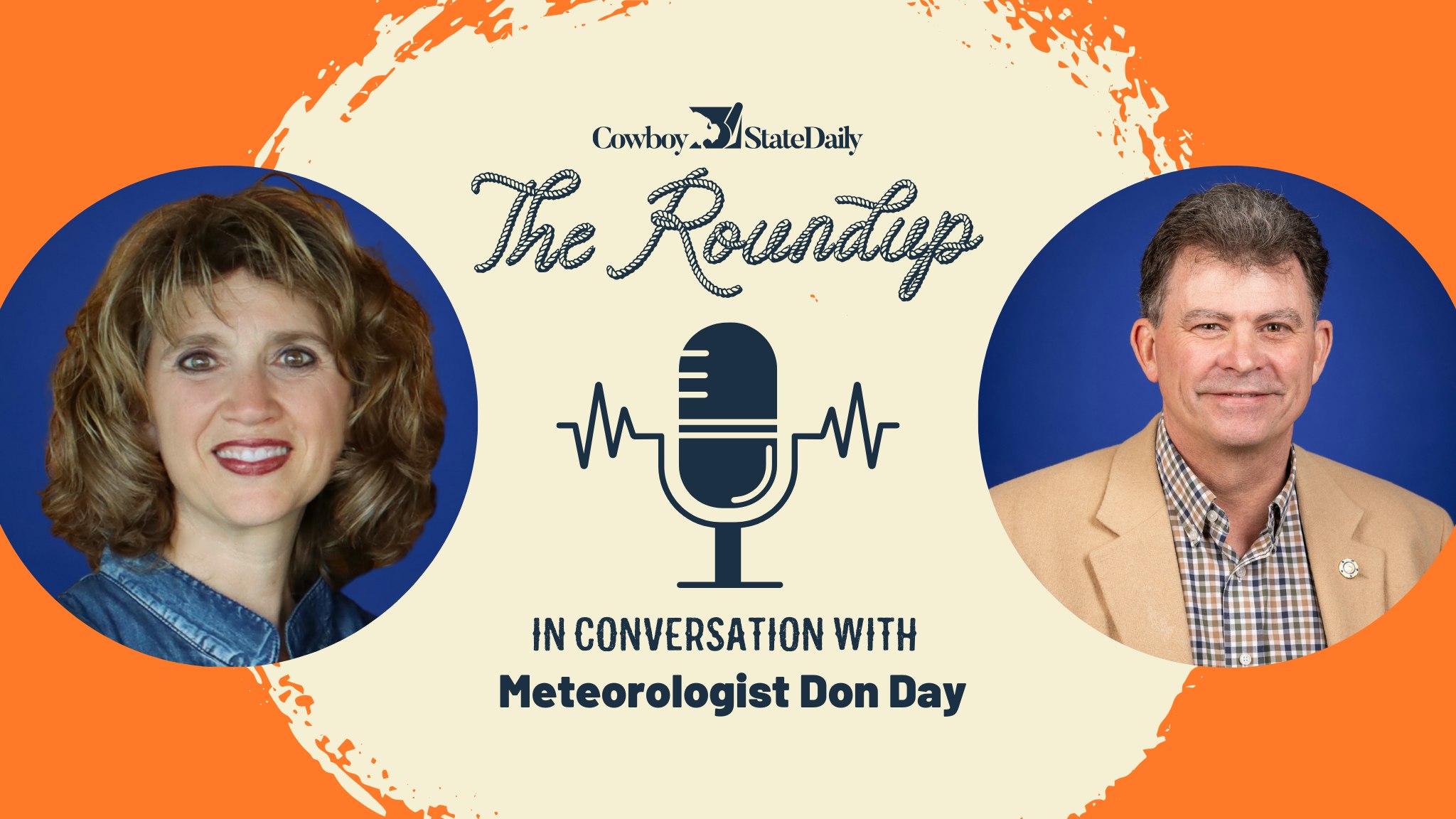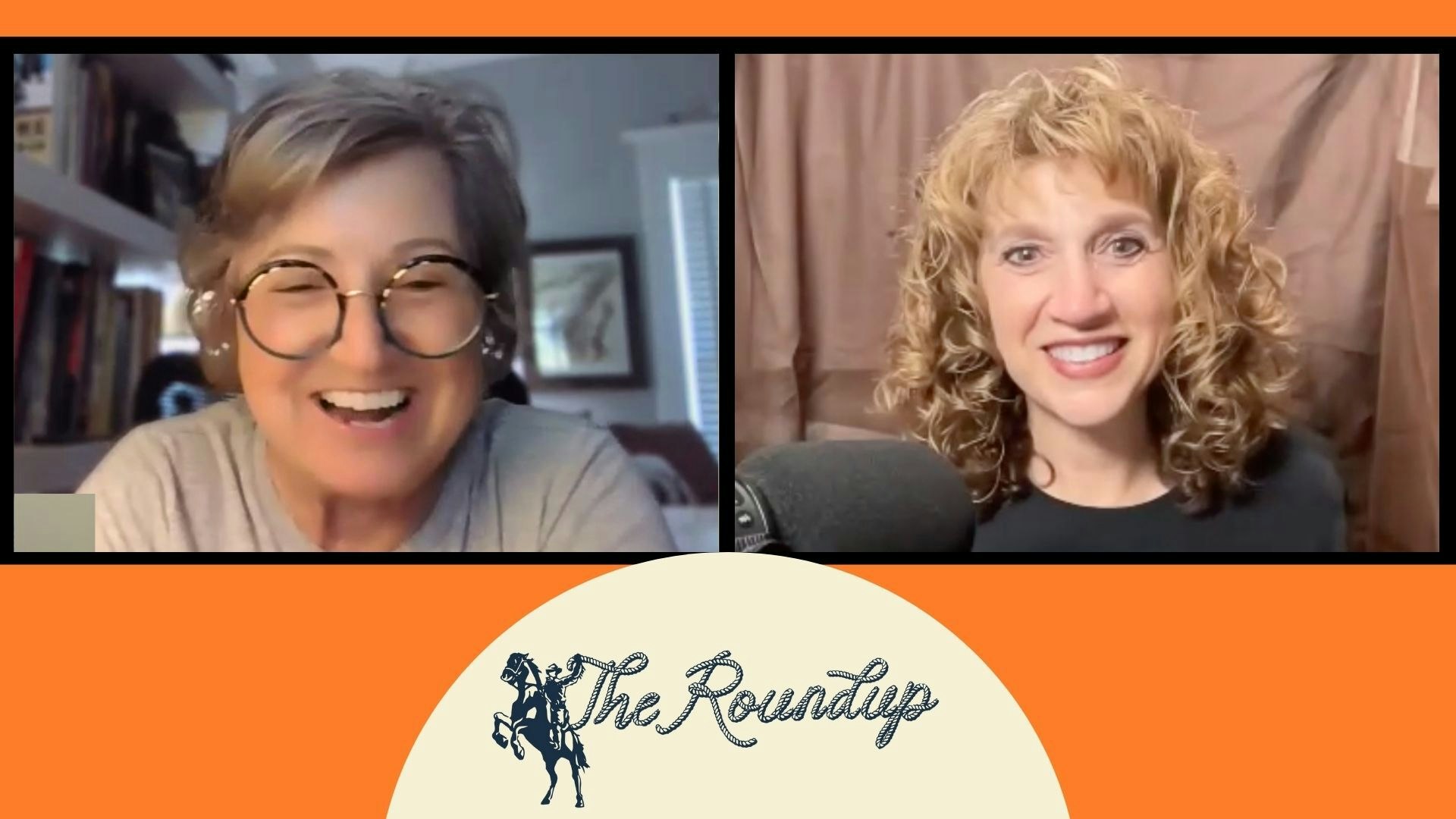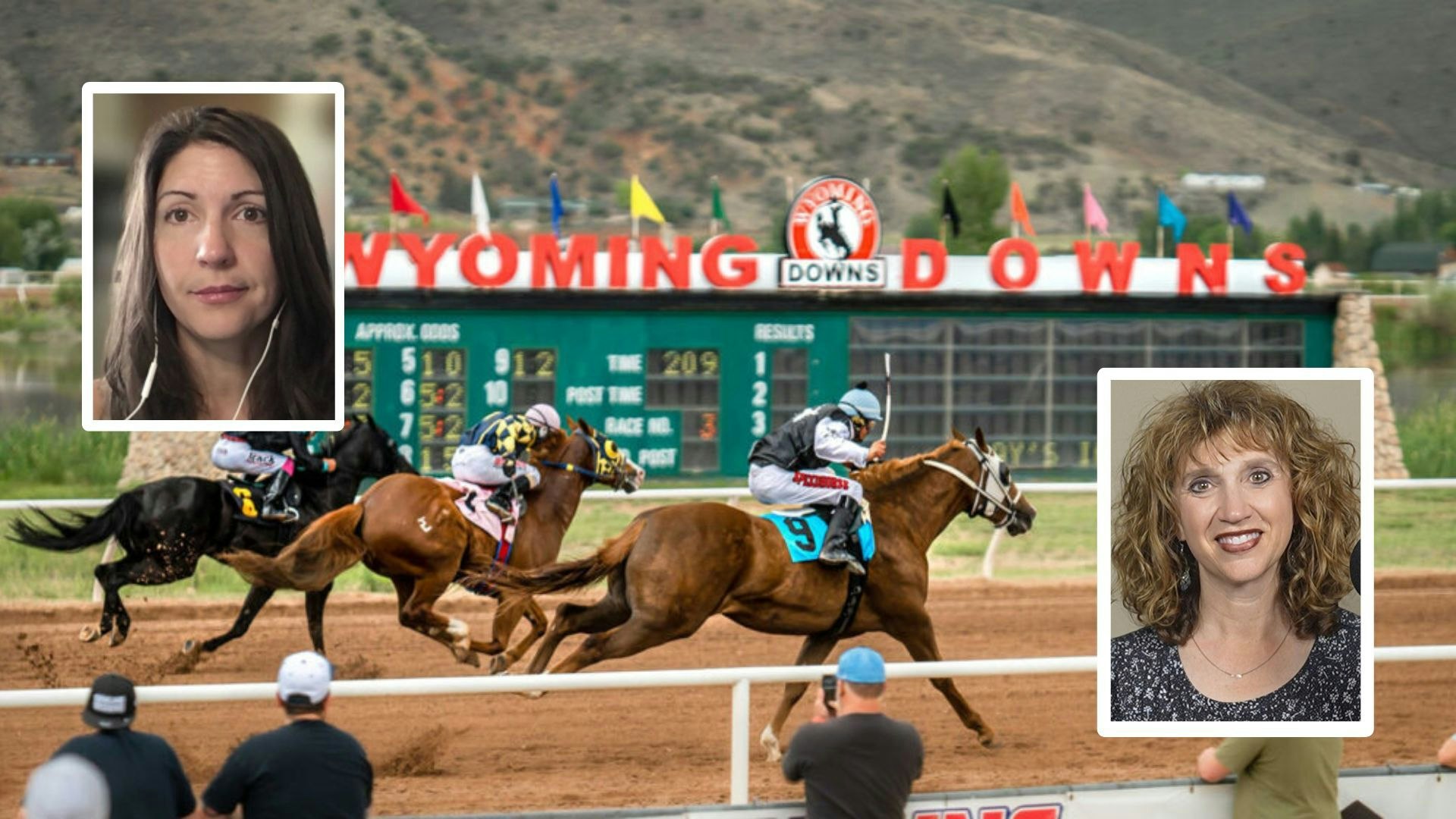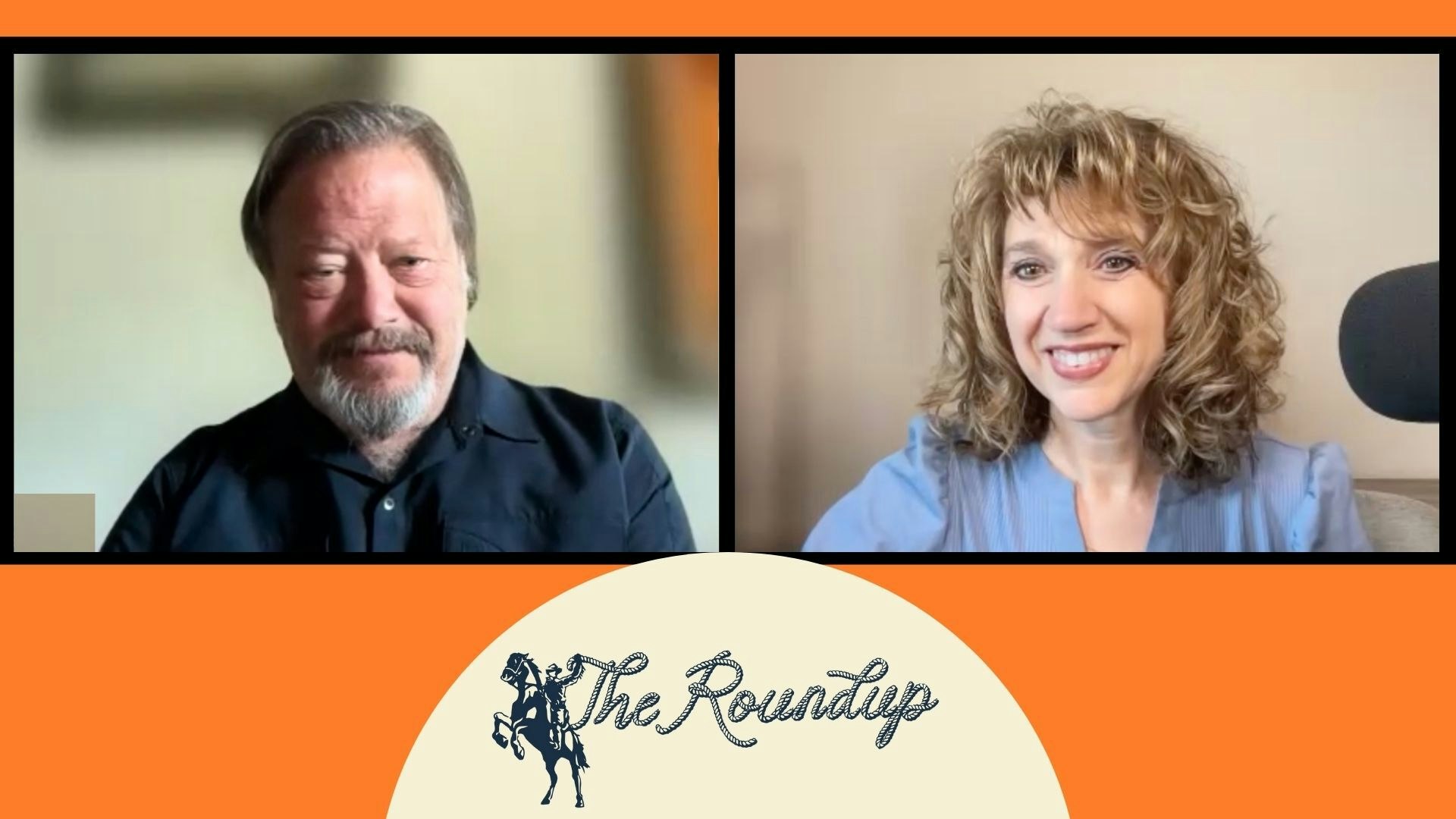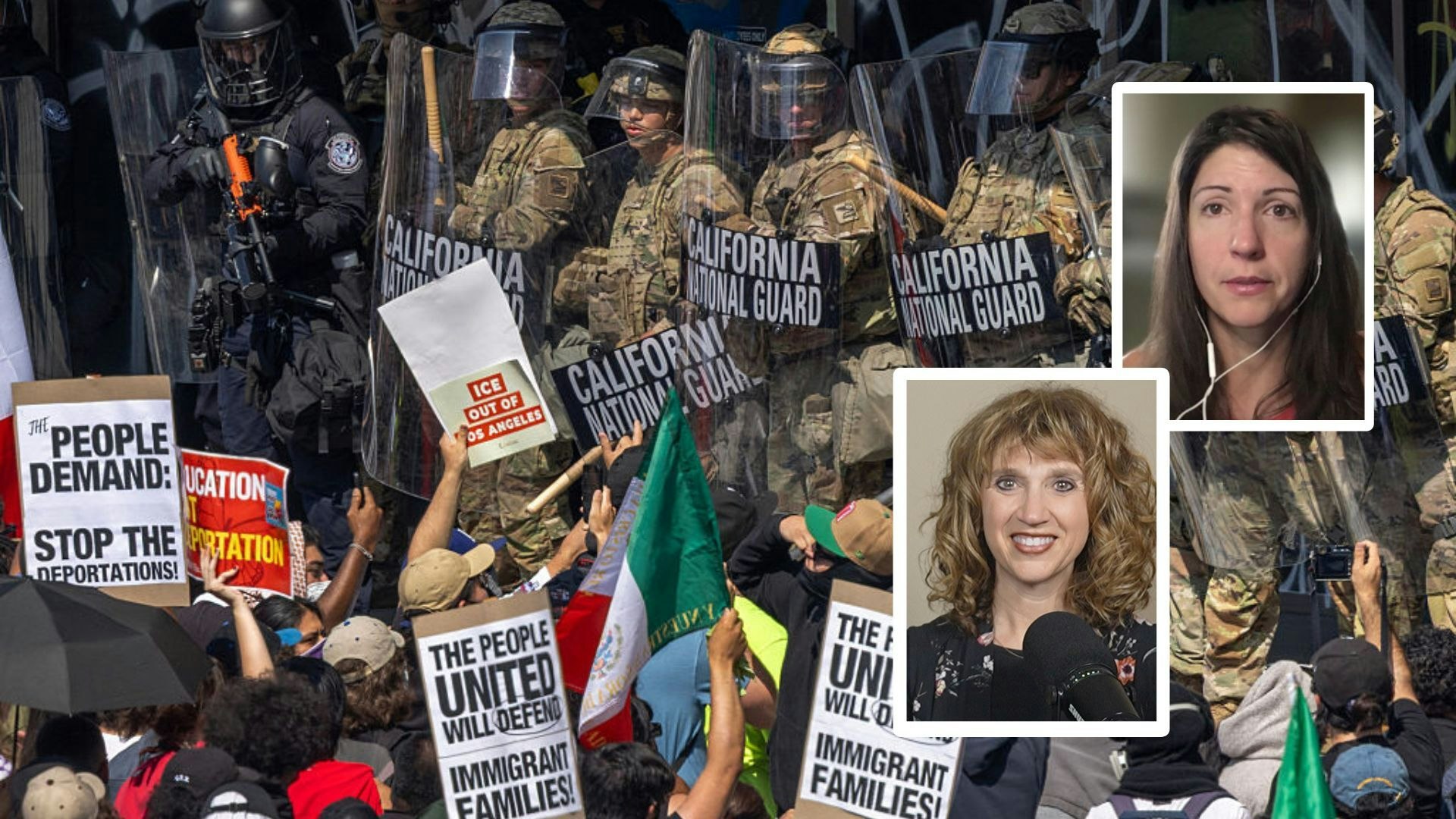Wendy Corr
Well, hey there, folks, welcome to “The Roundup.” This is a podcast featuring voices, opinions and perspectives from interesting people in the Cowboy State. I'm your host, Wendy Corr. And today's guest - you all know him, you all love him. You all rely on Don Day and his forecasts from DayWeather. And today we get to talk to Don and get behind the scenes with Don Day!
Don. Hello, welcome.
Don Day
Hi, Wendy. Glad to be here.
Wendy Corr
We are awfully glad that you're here. This is going to be, I've really been looking forward to this, because you have your presence in people's everyday lives. And so I just kind of want to give people a glimpse into a little bit behind the scenes with Don Day. So let's just start off with - Don, where are you from?
Don Day
Okay, well, I was originally born in Denver. That's something I don't admit to. Born in Denver, spent some time in Michigan. As my dad moved around, then we soon as I graduated high school, which was actually just outside of Detroit, I moved to Wyoming, moved to Cheyenne and went to Laramie County Community College for a year then transferred to the University of Wyoming and I've been here since.
And the reason that I came out to Wyoming is that my mom was born and raised in Cheyenne. And my dad was based at FE Warren in the Air Force. So that's how I ended up coming to be here and so every summer, we would vacation in Wyoming. My grandparents have had a cabin up in the snowy range mountains in a little place called Keystone. And every summer we would come to Wyoming and ever since I could remember, all's I wanted to do is wait till summer so I could come out west because I just just loved it.
And so as soon as I graduated from high school, I rented a UHaul and I headed west.
Wendy Corr
I think that is, I think that's a lot of people stories. I know that's how we got to Wyoming when I was a kid, vacation out here. So we’re very similar in that way. So what did you study when you came to Laramie County Community College?
Don Day
Well, when I when I came out, I always had been fascinated by the weather, in fact, loved it. And I really wanted to go into it. I'll be honest, I, I was terrified of the math and physics that you have to take to become a meteorologist. My second love was broadcasting. I grew up listening to the radio every night. I, whether it's sports or listening to weather people, I just loved radio. And so I went into broadcast journalism.
My first year, my first, let's say, three semesters of college, I was a broadcast journalism major. But when I transferred over to UW, my advisor, in the Journalism Department said, you should really take Intro to meteorology, because you never know if you're in broadcasting, they may throw you up there in front of the camera and do the weather one day. And I got really excited. I said, Oh, man, I would love to take that because I love weather. And really, that was my true passion at the time.
And so what I did was I took the intro to meteorology with professor who ended up being my mentor. His name was Auggie, our, some people may remember if taken him in the late 80s or early 90s at the University of Wyoming, and he just got my passion for meteorology going again. And as soon as I took that course, I kind of knew where I wanted to go. And so what I did was, as I got out of that, and so I ended up going from broadcast journalism to the hard physical sciences, which which wasn't an easy transition.
Wendy Corr
I think that it's fascinating that you knew what you wanted, you knew what you wanted from a young age. And here you are still doing it and doing it so successfully. I mean, you are Wyoming's weatherman. And tell me about the transition there. How did you then kind of branch out on your own? What was your career path until you became Day weather?
Don Day
Well, so I graduated in the early 90s. And at that point in time, the the field of meteorology was, you kind of had three places you could go, you could go into media, you could go into broadcast, do weather on TV, or something of that vein, you could go work for the government, the National Weather Service, and you could also go into the military and further your training and getting some expertise.
So the amount of jobs aren't nearly like they are now. And but the the opportunities were there.
And what I wanted to do was I wanted to go work for the National Weather Service. I always thought that that would be a good career path that you can take you to places all around the country. And you can do get into research and that type of thing. And so I befriended what, what was then the meteorologist in charge at the Cheyenne Forecast Office. And so when I graduated, I had all my paperwork in and I was hired to go work at the time shared in the Sheridan area actually had a head of the Office of weather service office. It was really my dream job because it was a office that didn't have what you call warming responsibilities. It was an eight to five job - now eight to five jobs in the weather business are almost unheard of. And so I love the Sheridan area thought oh my gosh, this is great. And so basically I had a job lined up to start late summer, early fall right after graduation. So I pretty much had had my career path set.
Unfortunately, there was a law passed, called the Graham Rudman Act, which was actually a federal hiring freeze. And so I was really weeks away from starting my job, I got a phone call and said, there's a hiring freeze. You're Hired, but you're not hired. And you're just gonna have to wait for it to open up again. So funny how things work out. So it was it was certainly a setback. And so I asked the weather service, I said, Well, how long do you think this will last? And they said, Well, you know, this is politics. And this could go six months, 12 months or 18 months, and I go, What do I do? It's like, well deliver pizzas. Like, well, I've done that before.
So I was single at the time, probably living on four or $500 a month, I said, You know what, what I can do is, is when I was in Laramie, part of my recreation money, gas money, beer money was I actually worked at Wyoming Public Radio. So I would, I did everything from news to sports. I did overnight D day shifts. I had a show I ran in the summer, one year went from 11 8:11pm to 5am, where I played new age music for six hours. How's that?
Wendy Corr
I actually have a similar story! So yes, I get it.
Don Day
So I had a lot of radio experience. And so at that point in time, I was hearing other people doing weather on the radio. And I thought of the Paul Harvey model, or the Rush Limbaugh model, which is get a bunch of radio stations, to take your program, and then sell advertising with your program. So while I was waiting for the weather service job to open up, I just cold called radio stations in Wyoming and Nebraska and Colorado and say, Hey, I've got radio experience, how about I be your weatherman, and even better, it'll be free? And they said, Sure, why not. I mean, they're offering something for free. And you know, weather and radio goes together really well.
So basically, I got 14 radio stations together. And I started just doing it out of my my one bedroom apartment, on my kitchen table, doing it through the phone. And doing phone feeds, and doing it all off the top of my head and putting it together. But that broadcast experience I gained, really, really helped.
And so long story short, it was about 20 months. And I got a call from the weather service. It says your jobs open. And I at that point in time, I could see that maybe I can make this work. I wasn't making any money. But I was able to start getting advertisers on my program by then I had been on long enough, but I was very lean for me for a year and a half. I remember getting an ad buy for $130. And I remember living off of that for probably two weeks. So I went back and I said Listen, I I think this idea I've got might work. Would I burn any bridges if I pass up this opportunity now and reapply later. And they were very gracious. And they said sure.
But it was it was very difficult. Because I was giving up security. I was giving up pension, health insurance, all of those things. But I was in my mid 20s. And if there was a chance, a time to take a chance then - and I had I have always been of the entrepreneur. I was always the kid with a lemonade stand. I was always somewhat of an entrepreneur had a paper out when I was 10 or 11. So worked in a bother me at all. So basically I I passed it up.
And so it here yet here I am right now still doing what I've been doing. I've branched out into other things. weather related, but still the broadcasting side of thing is still my main focus.
Wendy Corr
So let's talk about the branching out. This is fascinating. I just I love the fact that you started out as an entrepreneur, and you are still doing day weather that you started out with back in the mid 90s. I think that that's fantastic. And it's a success story right there. But but let's talk about the branching out, which is we did a story for Cowboy State daily, earlier this year, or actually, earlier last year, about hot air balloons. And I want to know Don, about how you got hooked up with setting hot air balloon, Guinness records. Tell me about this.
Don Day
Yeah, it's a crazy story. But it all has to do with a black lab named Murphy. So you're saying well, how does this relate. How does it How does a black Labrador get into this mix?
Well, so I was newly married, my wife and I took Murphy for a walk. Murphy needed a walk. So anybody that knows Labradors know that they need seven, seven to 10 walks a day. So we walked to the park, and there was somebody, a group of people setting up a hot air balloon. And so we went over and started talking to them and my wife had a hot air balloon fly over her house when she was a kid in Laramie and just had been infatuated with hot air balloons ever since. The people were very nice and then he found out I was a weather person. And weather and balloons are very, very well connected like anything in aviation. Next thing, you know, we're out, helping them crew helping them put the system together, they invited us they had a club, we could join the Club.
And the next thing you know, a couple years later, we're both we both become hot air balloon pilots. And what ended up happening is, is that it's a small community. There's there's maybe three or 4000 Balloon pilots registered in the United States. But you ended up meeting people, and you ended up connecting with people in networking. And since I was a meteorologist, and in a hot air balloon pilot that came in a unique skill set.
And then later on down the road, we met some friends some blueness in Albuquerque who were involved in other balloon projects that involve high altitude research, which means taking balloons to very high altitudes. And the people that were running these programs were contractors associated with the Air Force and space Missile Command and all of those things. And I got introduced to what are the meteorologist who was a consultant in some of these programs. And he fell ill. And he said there's a special project that's gonna involve a very large balloon flight at White Sands Missile Range part of the government project, could you fill in for me, and you have some experience with balloons in the weather.
At that time, I had very little experience. And so I went down there and perform that job. And we had a successful mission. But it was baptism by fire, because you're talking about going from the sides of a hot air balloon, which is, you know, two or three stories high to balloons that are all sudden hundreds of feet long and wide.
And what happened over time was his I ended up taking over for him. And all of a sudden, I found myself in a new part of my business, which was consulting for lighter than air projects, whether they're large stratospheric balloons or, or air ships. And in 2012, I was hired on to be a consultant for the Red Bull Stratos project, which was a which was a record attempt to have someone skydive from the stratosphere and set world records. And you know, that was a life changing project for me because all of a sudden, I was involved in some very intense, high risk projects in terms of the PA having a person on board, being a live television event and all of those things.
And ever since then, I find myself busy every year on a variety of different projects. And I've ended up on a lot of record breaking projects. Because if you're going to break a record in aviation, whether it's from a balloon or a helicopter or any type of aircraft, you need a weather element you need someone there to to do the weather, and also I have gotten involved in airspace, FAA, things where that that expertise is needed.
Wendy Corr
So let's talk about where you get the information for not only your high altitude projects, but also your day to day information where what do you rely on for your work because everybody's like, the weather is always unpredictable and the weatherman is wrong half the time you are a trusted voice people trust what you say. Tell us where you get your information.
Don Day
Well, thank goodness for the internet. When I first started, I had to acquire satellite dishes satellite receivers, because at that time, now this is you know is goes back to the earth as late as the late 90s. Before the internet really, to get going, you had to pull in all your weather charts, your satellite photos, a lot of your radar information via satellite. Now, now that we've got the internet, I can use the internet for, and most of what I look at honestly just about anybody if they want to, and they know where to look and look at the same information I see.
But I use a variety of, of weather tools that's generated by the National Weather Service, NOAA, but I also have access to worldwide modeling that comes from Japan, Europe, France, Canada, Brazil, I look at a variety of different things and the internet makes it all worthwhile.
But like any business, anything that you're here involved in, your experience over time really helps formulate, you know, the final product. And, you know, weather forecasting is is, is very much a combination of technology, the tools, and also experience. And the further along you go, the better the weather forecast you get, because you just start to see patterns, you start to see things that have happened before, you also start to find out where the models are good and the weather, weather models are bad.
But it wasn't without, you know, you still to this day, I've been doing this for 33 some years, they're still faced with challenges, despite the technology despite the speed of our computers. Despite our increased knowledge of the atmosphere, it is still very, very difficult to forecast. The demands of the public keep getting more intense. public and industry wants more and more. And not necessarily our forecasting has been able to keep up with that pace. So that offers up a lot of challenges.
I mean, I remember when I started. One of the best phone calls I ever got, was I think it was a woman from Lusk. She called me and she says, Hey, would you come up and get nine inches of partly cloudy off my driveway? Yeah, yeah. So you learn from your you learn from your mistakes, you find out what went wrong. And then he tried to fix it with the next opportunity that comes up.
Wendy Corr
So how long does it take you then to prep your weather forecasts? And I'm assuming you do it the day before to prep? Obviously you do it the day before to prep for the next day? And how long does it take you to gather all of your information, and then put it all together in a way that is user friendly for us? Because like you say, we can get that information in the data anywhere, but we don't have your experience to interpret that into something meaningful, how long does it take you to turn that data into something meaningful?
Don Day
Well, my day starts at 3:15 in the morning. And to have the best weather information is to have the most recent weather information. So believe it or not, I cannot look at something at six o'clock at night, and expect that weather information to still be good at three o'clock in the morning. So I've just learned over time that I constantly am looking at the weather. I'm constantly looking at charts, constantly looking at satellite imagery, seven days a week, we get new models every six hours. So you have to keep up on it even let's say when I'm not working. Not working on a weekend I'm still looking. So I'm still working in the sense that I'm still looking at what the weather is because it's so changeable that if you wait too long between your updates...
Honestly, Wendy, I do most of what I do off the top of my head. Because I've been doing this so long, I can look at something and be able to generate what I want to communicate fairly quickly. When I first started, I would hand write out a script, I would make it started out with writing the script. Then it moved to doing an outline to where when I got more and more radio stations, I did not have time to prepare a script for each one. And I can't do the same forecast in Casper as I do in Green River. Because the weather is different. So So I learned how to put it together and come up with a way I can put this off the top of my head and hit record and go.
Wendy Corr
That's impressive, honestly. So you're talking about seven days a week you're looking at the weather. When do you take a vacation?
Don Day
Weather never takes a vacation, and this is where the this is one of the I got a lot of advice when I first started one of the pieces of advice and this is why I tell younger people who approached me and say I want to be a meteorologist. And the first thing you tell him is say, well, it's very rewarding. It's very challenging. However, there's weather on Christmas, there's weather on New Years, there's weather on your birthday. It's a 24/7 endeavor in the sense that you have to be watching it all the time. So you've just kind of become accustomed to it. And it is very difficult to remove yourself completely from it.
I will tell you, if I go two or three days without looking at a weather chart, I start to get a Twitch, you know, because you're so used to it. Yeah, absolutely.
Wendy Corr
But do you get to take - I mean, obviously, you do hot air ballooning, and things like that. So I assume that you get to take vacations every once in a while.
Don Day
Yeah, every once in a while, and I try to do that. I try to do that more often. And try to catch up on my sleep, which is the hardest part.
Wendy Corr
Who takes over for you?
Don Day
I’ve got a great staff, I've got a lot of - people will be familiar with the name, Mark Heuer, he's been with me over 20 Some years helping to fill in for broadcasting and Don Wattles, and other meteorologists, that helps me out. Jim Washburn is another one that I that I've been working with since all the way back into the early 90s. So I do have staff that helps out, but my business is just not broadcasting.
We do this high altitude consulting, we also do consulting for departments of transportation, building contractors, when you're in the private weather business, which is what I mean is, is you have to have a variety of different clients a different basis to go on to formulate your business. So that's one thing I have learned is I just can't stand on one thing, and I always joke with people, I said, if you're gonna be a private meteorologist, you gotta be right 51% of the time, because people pay you to make a forecast. And so so you have a little bit more pressure than other fields in meteorology, to where, well, it's implied, there's a good chance that you're going to be wrong, some of the time. But we have to be just a little bit better than that. To pay the mortgage. Absolutely.
Wendy Corr
Now, let's talk real quickly, because a lot of people follow you on YouTube, you have a podcast. So like you say, you've branched out of just broadcasting. Tell us about when you decided, You know what, we're gonna go internet based, we're gonna go to YouTube and these other things, and how that increased your following.
Don Day
Well, yeah, so I have to give credit where credit's due, I had a listener, a radio listener in Casper sent me an email one day and said, Hey, you should start doing a podcast. And I said, Okay, why not? There's a lot of things I've done in my business for free, where there's no guarantee that what you're going to do is going to end up producing any revenue. Because let's face it, anybody and their brother can start a podcast? How do you monetize that podcast and get enough people I mean, if you're Joe Rogan, you have so many people listening, you're gonna do well - let's face it, in Wyoming, we don't have a population based or where you can produce a lot of numbers to generate those types of things.
And so it started very simply, just doing an audio, podcast, and just, he helped, he helped me a lot, how to set it up and software to use and how to do those types of things. And, and it grew from that to where we found out you had the ability to put graphics with, with your audio.
And that's where we went into the YouTube realm, to where you could explain to people what you're trying to explain, from a radio standpoint that the YouTube format allows you to show maps and satellite imagery and show why you're thinking what you're thinking and be able to do that.
And what I love about it is there are no hard, hard or fast rules, there's no format you have to follow, you can kind of just create your own program and everything else. And it really has taken off. It's exceeded my expectations.
And I have also found out that that we've got a lot of people who in other states that watch it, that have some connection to Wyoming. But they also realize that if they can watch and what's happened in Wyoming's whether they can kind of infer what's going on in their state that's close by.
Wendy Corr
What is it do you think, Don, that that is special about your podcast, that makes people from other states listen to you over their local weatherman?
Don Day
Well, I'll be I will be honest, and forthcoming about our confidence level. A lot of times when you get a forecast, it's a forecast, but there's never anything with it that says This is an eight out of 10 confidence level, this is a one out of 10 confidence level, I think what's different is number one, I show him what I what I see, this is what I see. And I want to show you what I see. And then I want you to show you what my challenges are to try to make the forecast. So basically, I'm letting them in to the insight of how the forecast is made. And if I tell him, I don't know what's going to happen, or I have a low confidence I do.
And I also think that by me explaining what I see, they learn something, they learn how the atmosphere works, I'll try to throw in some educational morsels here and there. And there are a lot of people who are weather nerds, you know, I'm a weather nerd, that just love weather, you know, and so, so if they have the ability to not only learn something, but also get the forecasts at the same time, that format, the podcast format, gives me the ability to do that, that I can't do with a 30 second forecast on the radio.
Wendy Corr
And we are all the beneficiaries of this. So we are grateful! Don, this has been a fascinating look behind the scenes of a very successful weather enterprise that you've created that you say you're going on 33 years now of doing this. And do you see yourself? Do you see yourself doing this for years to come yet? Are you slowing down at all?
Don Day
I'd like to I would like to slow down and catch up on my sleep. I mean, getting up at three o'clock every morning for 30. Some years does get to you after a while. But I see myself being involved for quite a bit longer.
Wendy Corr
We are glad for that, Don. Thank you so much for being our guest today on The Roundup! This has been just a lot of fun. And of course, you and I have known each other for years, just through Cowboy State daily and other broadcasting. And it's been fun to kind of get to know who you are, as opposed to just hearing your voice. So thanks a lot, Don!
Don Day
Thanks, Wendy.
Wendy Corr
And folks, thank you for tuning into our podcast, The Roundup. I'm your host, Wendy Corr. Tune in next week as we chat with another great Wyoming personality about news and views that are important to you. Have a great week!

